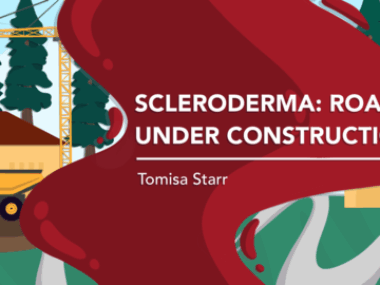CAR T-cell therapy eases SSc symptoms, early trial data show
Bristol Myers Squibb tests therapy in autoimmune diseases
Written by |

A CAR T-cell therapy being developed by Bristol Myers Squibb eased skin thickness and improved lung function in people with systemic sclerosis (SSc), early trial data showed.
These initial results for the treatment, BMS-986353, come from the Phase 1 Breakfree-1 clinical trial (NCT05869955), which is testing the therapy’s tolerability, preliminary efficacy, and pharmacological profile in several autoimmune diseases. Breakfree-1 is currently recruiting at several sites in the U.S.
The results are being reported at the American College of Rheumatology (ACR) Convergence 2025, being held Oct. 24-29 in Chicago, in a presentation titled “Efficacy and Safety of BMS-986353, a CD19-Directed Chimeric Antigen Receptor T Cell Therapy Manufactured Using a Next-Generation Process: Updated Data From a Phase 1 Trial in Patients With Systemic Sclerosis.”
“While early, these data demonstrate our focus and steady advancement toward introducing the potential of treatment-free remission, which just a few years ago was not thought to be possible for patients with severe autoimmune disorders,” Lynelle B. Hoch, president of the cell therapy organization at Bristol Myers Squibb, said in a company press release.
SSc is caused by an overactive immune system that results in inflammation and accumulation of scar tissue in the skin and connective tissues, which support and hold organs together. Immune B-cells produce antibodies to help the body fight off diseases, but may also produce self-reactive antibodies that drive autoimmune disease.
Skin, lung improvements seen in trial
BMS-986353, also known as CC-97540, aims to deplete B-cells by collecting a patient’s T-cells and modifying them in the lab to carry a chimeric antigen receptor (CAR) that binds to CD19, a protein on the surface of B-cells.
The cells are produced using the company’s NEX-T process, which aims to optimize manufacturing to enhance CAR T-cell therapy efficacy. The modified cells are then infused back into the patient.
The Breakfree-1 trial is assessing the therapy in people with severe, treatment-resistant autoimmune diseases. These include diffuse or limited scleroderma with interstitial lung disease (ILD) — scarring and inflammation in the lungs — in patients with inadequate response to at least one immunosuppressant therapy.
All SSc-directed therapies were discontinued before the CAR T-cell infusion, which was administered once at two dose levels — 10 million or 25 million cells — after chemotherapy for depleting immune cells and creating room for the infused cells.
Newly presented results from 19 people with SSc showed a clinically meaningful reduction of skin thickness and improved lung function in those with ILD (six patients). Predicted forced vital capacity, a lung function parameter, improved by a median of 10% after six months.
Safety was consistent with what is expected for cell therapies, according to the company. Some patients experienced low-grade cytokine release syndrome (CRS) that resolved in a median of two days. CRS refers to acute inflammation response that occurs when the immune system releases large amounts of immune proteins called cytokines.
Two transient immune effector cell-associated neurotoxicity syndrome (ICANS) events were reported and were resolved completely within five days. ICANS is characterized by neurological symptoms by activating immune cells in the central nervous system (brain and spinal cord). Most treatment-emergent adverse events occurred shortly after infusion and resolved quickly with standard management.
“These updated results highlight the potential for patients with systemic sclerosis to achieve B cell depletion, with meaningful improvement in lung function and skin thickness, following a single infusion of CAR T cell therapy, even after discontinuing SSc-directed therapies prior to infusion,” said Dinesh Khanna, MD, who leads the scleroderma program at the University of Michigan.
The trial is also testing the therapy in people with systemic lupus erythematosus and inflammatory myopathies — conditions that affect the muscles. Early results demonstrated that 94% of all evaluated patients across all groups remained off chronic immunosuppressive therapy.
“The potential for new treatment approaches to ‘reset’ a patient’s immune system, while early, is highly encouraging and provides hope for patients living with these chronic diseases,” Khanna said.






